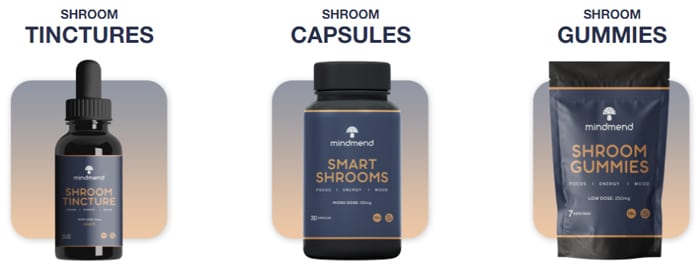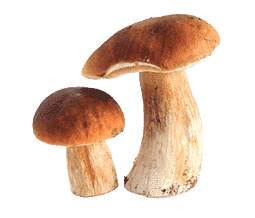Microdosing magic mushrooms are currently one of the most talked-about topics in the field of modern psychedelics. In fact, it’s one of the most talked-about topics in mental health and psychiatry.
Mind Mend is tapping into the power of microdosing with psilocybin mushrooms.
The results for people that give it a try can be truly inspiring.
I’ve battled with social anxiety for most of my life. Microdosing psilocybin has given me the ability to connect on a deeper level with people that I never thought was possible.” – Nick H.
What is Microdosing?
Microdosing refers to the consumption of a very small dose of a psychedelic drug. The most commonly microdosed psychedelics are LSD and psilocybin (“magic”) mushrooms.
A microdose is typically 10 to 50 percent of a full dose. The idea is to consume the minimum amount that makes an effective dose.
A microdose typically won’t produce the strong hallucinogenic effects associated with psychedelics. You won’t be going on the wild ride known as a “trip.”
Instead, people that microdose do so to reap a variety of psychological and physical benefits. Your experience with microdosing shouldn’t be super intense. Instead, it should help you go about your day as the best version of yourself.
Microdosing can help with:
- Depression
- Anxiety
- Creativity
- Energy
- Focus
- Productivity
…and so much more.
Here are three of the most incredible benefits of microdosing mushrooms.
Microdosing Can Improve Your Mood
Recent research has started to make clear some of the mood-enhancing effects of microdosing.
A 2019 study on microdosing psychedelics found improved mood to be the number one benefit experienced by participants.
“Improved mood” refers to a variety of positive mental health outcomes. These include enhanced levels of happiness, well-being, peace, and optimism, as well as a decrease in symptoms of depression.
Many people familiar with psychedelics have long been aware of these positive effects. Now, research is starting to catch up.
We’re at the beginning of a boom period in research and appreciation for microdosing and psilocybin in general. The United States Food and Drug Administration has granted the Usona Institute a “Breakthrough Therapy Designation” for psilocybin treatment of depression.
The Usona Institute has already launched an 80-person clinical trial. This research could improve our understanding of the immense potential for psilocybin in regards to mood improvement.
Microdosing could also have a role to play in assisted psychotherapy, an exciting innovation in mental health treatment.
Assisted psychotherapy involves professionally supervised use of psilocybin or other psychedelic substances. It’s been described as a paradigm shift because it leaves behind outdated fears and stereotypes about psychedelics.
We’re all for paradigm shifts because it’s clear that mental health challenges are a worldwide crisis in need of brave new solutions.
Microdosing Can Improve Focus and Creativity
Microdosing can help you to focus and think more clearly.
A full dose of psilocybin might reduce your ability to focus, as you’re immersed in the psychedelic effects. A microdose, however, can sharpen your focus.
That means more productivity and more capacity to pursue your work and your passions.
A 2018 study found that microdosing psychedelics improved both convergent thinking and divergent thinking.
Convergent thinking refers to identifying the correct single solution to a straightforward problem. Divergent thinking is more associated with creativity, as it refers to the ability to produce a large number of ideas in response to an open-ended question.
Improving both of these abilities indicates the incredible potential for microdosing to unleash a higher level of mental focus and creativity.
Natasha Mason, Phd candidate at Maastricht University, authored a separate study on the effects of microdosing psychedelics. Her research found that microdoses increased creativity in study participants.
Increasing evidence suggests that psychedelics like psilocybin may have potential therapeutic value for disorders like anxiety, depression, and PTSD. The focus of such investigations has been on psychedelics capacity to reduce symptoms of these disorders… However, of equal importance are the higher-order cognitive processes that may be enhanced, or that may play a role in symptom alleviation of the disorders.” – Natasha Mason, PhD candidate, Maastricht University
As psychedelics have long been associated with creativity and art, it’s no surprise that research is beginning to demonstrate these connections.
In this growing field of psychedelic research, we’re excited that microdosing is getting the attention that it deserves.
Microdosing Can Provide Social Benefits

Perhaps the most transformative microdosing benefits are those related to social connection.
In addition to benefits related to mood and other areas, the 2019 study on microdosing (see above) also identified social benefits.
These were described as “various socially facilitating benefits such as extraversion, empathy, sense of connection, and verbal fluency.”
This comes as no surprise to people that have experienced the profound sense of connection that psychedelics can unlock.
People that have used psilocybin commonly describe the trip as one of the most profoundly spiritual events they’ve ever experienced. The trip can bring intense feelings of kinship with other people and with nature.
Those sensations can be overwhelming in a full-blown psychedelic trip. However, we’re learning that microdosing can uncover the same benefits in more manageable levels.
Can you imagine feeling more connected to the world around you?
Then there’s reason to be excited about the long term positive effects of tapping into the social benefits of microdosing.
How Much and How Often Should I Microdose?
A microdose of psilocybin is between 0.05 and 0.25 grams.
If microdosing works for you, establish a schedule.
We recommend Dr. James Fadiman’s dosing protocol of dosing once every three days. Or, the Paul Stamets method of five days on, two days off.
For more information on dosing amounts and schedule recommendations, visit our dosing page.
Just remember to keep these tips in mind:
- Only get shrooms from trusted sources.
- Discuss microdosing with your doctor before getting started. Psilocybin may not be right for some people.
- Microdose if and only if it feels right for you, not because it’s trendy.
- Check the quality of your shrooms to make sure they are lab-tested to ensure the highest quality.
Are There Negative Effects from Microdosing?
There are a few negative effects that can occur at the microdose level. These include an increase in neuroticism and amplification of negative mood.
Psilocybin can “turn up the volume” on feelings that you already have. So, a positive or negative mood can be amplified.
However, psilocybin can also open you up to new feelings and energies that can break existing negative cycles.
Finally, it’s important to note that psychedelics are not recommended for individuals who experience psychosis.
Curious about side effects from different psilocybin dosing levels? Be sure to check out our dosing page for more information.
Getting Started With Microdosing
There’s never been a better time to tap into the benefits of microdosing psilocybin.
That’s because psilocybin mushrooms are finally available in controlled doses. That means you can experience a safe, predictable, and reliable effect.

Choose the delivery method that works best for you. We offer tinctures, capsules, or gummies. These options are giving people more control over their dosing experience.
Visit our shop now and see what benefits microdosing can bring to your life.
Do you have more questions? Visit our FAQ page to learn more.
Featured Image: Unsplash by Presetbase Lightroom Presets





